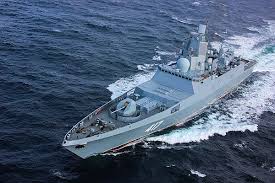
Yuri Mavashev
The Ceres-1 launch vehicle of the Chinese aerospace company Galactic Energy has successfully launched five satellites into orbit for reconnaissance and scientific purposes. The US fears that Beijing will overtake Washington in the space race, and this may have a military dimension.
Speaking at the annual Reagan National Defense Forum, US Deputy Chief of the US Space Force, General David Thompson, warned that by the end of the decade, China could “overtake the US in space capabilities.” According to the general, the Chinese “on average create, deploy and upgrade their space capabilities twice as fast as the United States.”
“Yes, China really pays a lot of attention to the development of its space program. In fact, they actively mix civilian and military launches. Over the past five years, China has dramatically increased them. All these facts give rise to concerns in the US,”- told the Director of the Institute of Asian and African Countri-es (ISAA) at Moscow State Unive-rsity M.V. Lomono-sov Alexey Maslov.
However, there is no exact answer to the question of how effective Chinese space technology can be in real combat conditions, since Beijing does not publish most of the technical parameters of what exactly it is launched into space, Maslov said.
“China views military space as a priority for its military development. In this regard, Beijing is actively engaged in the development of the satellite constellation (according to this indicator, they are in second place in the world after the United States) and the creation of means of destruction of various targets in space, including kinetic interceptors, “an expert on the Chinese military-industrial complex told Gazeta.Ru. Vasily Kashin, Director of the Center for Comprehensive European and International Studies (CCEMI), National Research University High-er School of Economics.
In 2021, China made 47 orbital launches (45 successful), leaving the USA (40 launches, 38 successful) and Russia (20 launches, 20 successful) in second and third places, respectively.
According to Kashin, Beijing’s activity also concerns laser systems that disrupt the operation of satellites.
“I don’t think this is just a demonstration or an attempt to impose an arms race on the United States. China, on the other hand, does not seek to attract too much attention to itself and exaggerate what it is doing in the field of military space. On the Chinese side, in relation to military programs, there is much less hype than other players. At the same time, the Chinese side already really has something to boast about, ”the expert is convinced.
Specifically, China is building its own version of global positioning satellite systems. Cooperation between Moscow and Beijing is possible here.
“Against the background of our well-known confrontation with the United States, we have signed a number of new agreements in China, but it remains to be seen what will come of this. From the possible and foreseeable – the development of cooperation in the line of positioning systems GLONASS and “Beidou” (Chinese satellite navigation system, it came out at full capacity in 2020, – note “Gazeta.Ru”). They already exist, and they have great prospects. Because the combination of the two systems can dramatically improve accuracy and reliability. This is also important from the point of view of military use,” said Kashin.
The expert recalled that in 2019, Russian President Vladimir Putin announced that Moscow “is helping Beijing in creating a missile attack warning system,” and such systems “include the space echelon.” Kashin also did not rule out that this issue was clarified in the roadmap for the development of cooperation in the military field for 2021-2025, which Russia and China approved at the end of November.
“The most interesting thing here is that China does not have to enter into a defensive alliance [with Russia] in order to present a“ headache ”for the United States, including in space. The fact is that the life of the ISS is coming to an end in 3-5 years (the operation of the station is agreed through 2024 inclusive, but the extension of the term of operation until 2028/2030 is being considered, – note “Gazeta.Ru”).
The PRC may, at some point, become the only country that will have its own permanent and inhabited station in space. That is, Beijing will have a kind of monopoly on manned near space for some time,” – says Oleg Barabanov, Program Director of the Valdai Club, Professor of MGIMO and the Russian Academy of Sciences.
The post Washington fears Beijing’s military capabilities in space appeared first on The Frontier Post.






